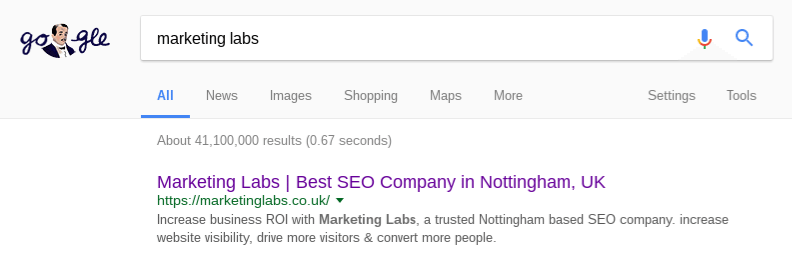On-page SEO is still vital. Use these on-page SEO tips to improve organic performance.
Marketers understand that SEO is one of the more prominent digital marketing techniques you can use in today’s busy digital world. The primary purpose of search engine optimisation is to improve the way a website performs in search engine results.
What a lot of newcomers don’t understand is that there are actually two categories under the SEO ‘umbrella’ – off-page and on-page. Off-page SEO primarily involves link building, along with many other more traditional SEO tactics too.
Today’s article is going to focus on on-page SEO, which deals with the ways in which you can influence search engine performance by tweaking elements on your website. Below, you will find five simple on-page SEO tips that will help you improve your organic search performance.
Don’t overuse keywords in your content
Keywords are an essential part of SEO as they directly influence your search engine performance. When a user searches for something in Google, they’ll type some keywords into the search box. All of the sites that appear in the results will have some relation to these keywords. A keyword helps Google and other search engines figure out what your content is all about.
One of the best places to include keywords is in the content on your information pages or product pages if you are eCommerce store. It is important to remember that the content throughout your website is the foundation of your on-page SEO. Therefore, it is crucial that you carefully control the amount of keywords used throughout the content along with its quality and readability. Long gone are the days of keyword spamming, using this tactic in today’s online world will lead to a Google penalty. The trick is to write for the user but always keep in mind the search engine ‘bots’. As a general rule, try and make sure your keywords make up no more than 5% of the content on your pages.
Make sure you optimise your Meta descriptions
Meta descriptions are snippets of information displayed in search results. Although meta descriptions are not ‘crawled’ by search engines, they can influence visitor click through rates (CTR’s). Adding detailed descriptions to individual pages can help search users to determine what your page is about, which in-turn can indirectly boost search engine rank performance as your click through rate increases.
To help optimise your meta descriptions, build a keyword map around each page and use plugins within your site framework such as SEO YOAST to add the meta descriptions within each page.
Come up with SEO-friendly page titles
Many experts argue that your title is the most important on-page SEO factor there is. It is these page titles that are displayed in search engine results along with meta descriptions. It is, therefore, imperative that you create titles that are keyword rich and SEO-friendly but most importantly make sense to the reader. Failure to optimise your page titles could lead to poor click through rates.
As an example, look at the homepage of our site. We’ve titled it ‘Marketing Labs | Best SEO Company In Nottingham, UK.’ This title is SEO-friendly as it informs users what the page is about while also including important and relevant keywords that are targeted towards our audience and location. By setting our page title this way, when someone searches for ‘best SEO company’ or ‘SEO company in Nottingham’ our site has a higher chance of appearing in the results whilst at the same time, looking enticing to search engine users.
Use SEO-friendly URLs
You may be unaware of the fact that your page URL will also count towards the on-page SEO performance. Ideally, you want short and sweet URLs as they’re more SEO-friendly and easy for users to remember. The rule of thumb is that URL’s should not exceed 255 characters. As page URL’s are permanent, they should include targeted keywords for that page rather than random numbers and characters. When using a content management systems such as WordPress, make sure your ‘permalinks’ are set to create the URL by using the page header title.
Again, we can use our own site as an easy example by showing you the URL for our SEO services page: https://marketinglabs.co.uk/services/search-engine-optimisation-seo/. The keywords are clear, and we use hyphens to separate each word.
Focus on the structure of your site
Website architecture is a crucial factor in on-page SEO. The way your site is structured can have a huge impact on how search engine ‘bots’ crawl and understand your website. Internal linking is an important part of site structure and therefore, it is critical that you link to other pages within your website. This not only benefits your users’ experience as they can quickly move between pages but it will also allow search engines ‘bots’ to crawl your website more efficiently. It is vital that you invest time in the architecture of your website as search engines continue to grade ‘usability’ as an SEO ranking criteria.
In addition, it is important to check that your internal and external links are working by carrying out regular 404 error reports through software programs such Deep Crawl, who currently offer a 1-month free trial.
There you have it; five very simple free on-page SEO tips that anyone can use to improve their website search ranking performance.
SOURCE: https://marketinglabs.co.uk











